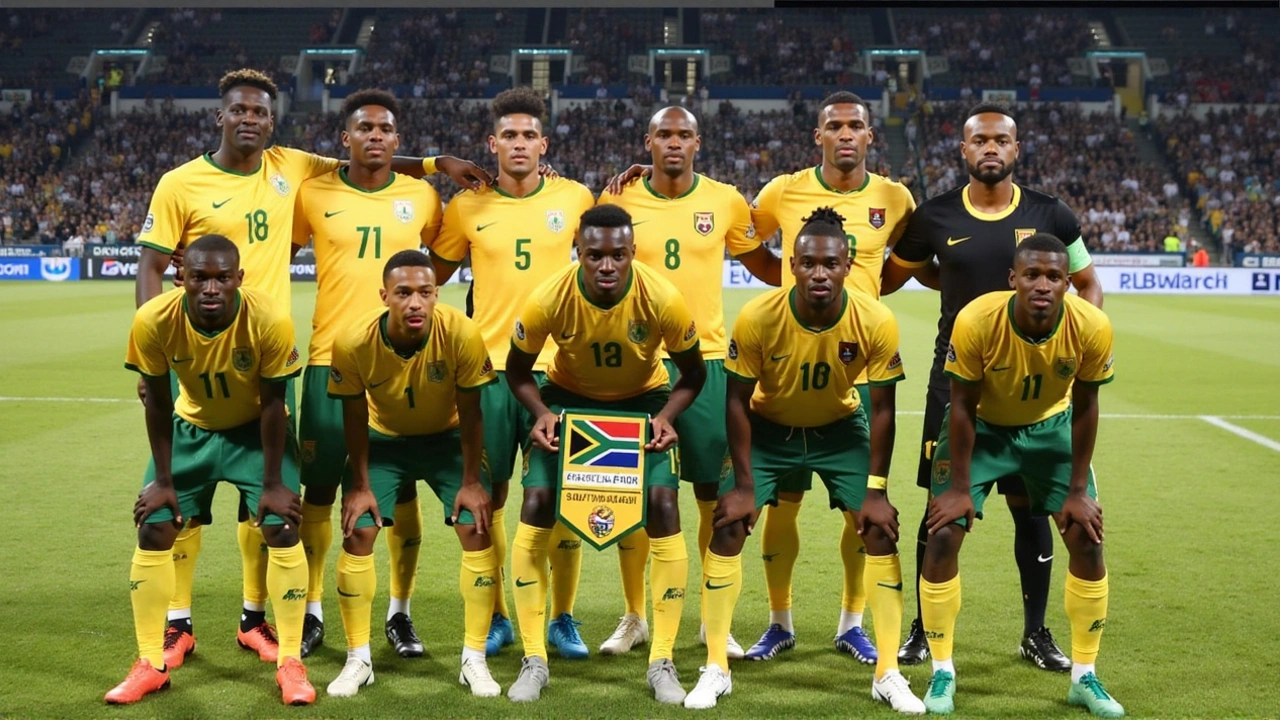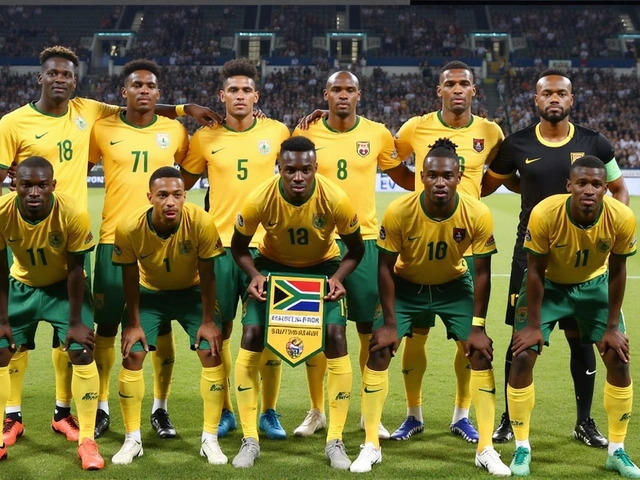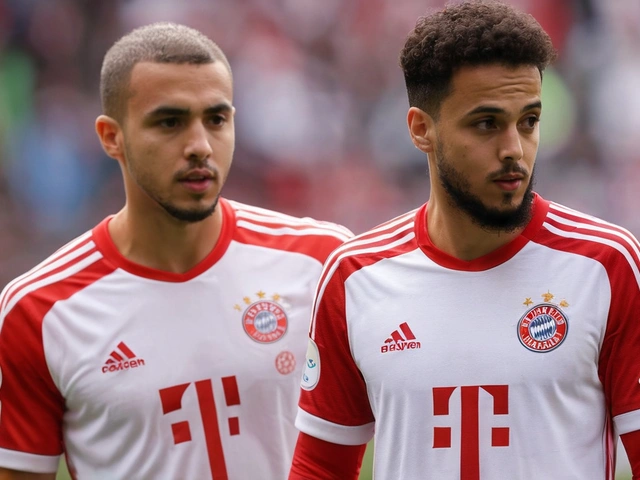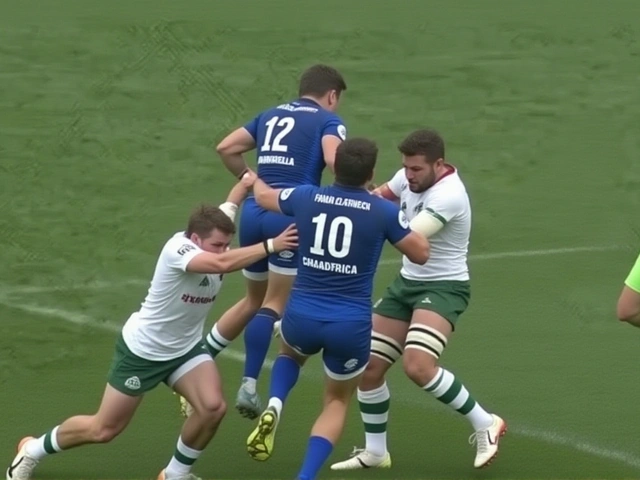
Unpredictable Outcomes: Bafana Bafana's Road to AFCON 2025
The journey to qualify for the prestigious Africa Cup of Nations (AFCON) is never without its twists and turns. South Africa's beloved national team, Bafana Bafana, experienced a significant wobble on what seemed a straightforward path after drawing 1-1 with Congo-Brazzaville on Tuesday evening, October 15th, 2024. The anticipation was palpable as fans packed the stadium, buoyed by the recent memory of Bafana's staggering 5-0 victory against the same team in Gqeberha. Yet, as the final whistle blew, the scoreline confirmed that the team's passage to the 2025 tournament wasn't as secure as hoped.
The Match: A Battle of Strategy and Tension
Both teams entered the match with determination etched on their faces. With Congo-Brazzaville on home soil, their strategy was undoubtedly different from the one that saw them overwhelmed in Gqeberha. The game progressed with an intensity befitting its significance to both teams' AFCON aspirations. An early goal from Congo set the tone, prompting Bafana Bafana to recalibrate their tactics. Despite the pressure, South Africa managed to equalize before the half-time whistle, reigniting hope among their supporters.
The second half was a test of resilience and resolve. Both teams pushed for a winner, but nerves and defensive solidity carried the day. For Congo-Brazzaville, a draw against a formidable South African side was as good as a victory. For Bafana, the result served as a reminder that past successes offer no guarantees, and that qualification dreams might hang in the balance of future fixtures.
Learning from Setbacks: Bafana's New Game Plan
The draw has become a point of reflection for Bafana Bafana and their coaching staff. Often, a result such as this calls for an introspective look at both tactics and team dynamics. While the 5-0 triumph in Gqeberha was a showcase of talent and precision, this recent outing highlighted areas in need of attention. Namely, how to adapt play style according to the opposition's strategies and the environmental factors of playing away from home. It is in these setbacks that the lessons for future matches lay, showing the players the importance of versatility and psychological readiness.
Factors Influencing AFCON Qualification
Football, by its nature, is unpredictable. Several factors play into the dynamic results that characterize world qualifying tournaments. These include changes in team composition, injuries to key players, climatic variations, and the mental pressure of performing well under the public eye. As Bafana gears up for what have now turned into crucial upcoming fixtures, the team is well aware of the multifold elements they have to account for to secure their spot in the AFCON 2025. Ensuring player fitness and morale is on top of their agenda.
The Road Ahead: What Fans Can Expect
With this draw, Bafana Bafana fans are left in a state of suspense until the forthcoming matches conclude. While the setback is not ideal, optimism remains due to the team's sharp skills and prior performances. The anticipation now builds towards the upcoming fixtures, which are pivotal in determining South Africa’s position in the tournament. Coaching adaptations, stronger strategic implementations, and perhaps even some star performances can turn the tide in Bafana Bafana’s favor.
Fans, now more than ever, are vital in rallying behind their team. The South African public's passion for football is boundless, and their support provides both a motivational boost and a broader sense of unity. As the next AFCON qualifier approaches, the shared dream of witnessing Bafana Bafana on Africa’s grandest stage once again fuels the nation's collective spirit. The hope is that the lessons from this draw consolidate into progress and improved outcomes, driving the team toward their ultimate goal.






Reading about Bafana's stumble really makes you pause and think about the nature of momentum in sport – it’s like a river that can surge or dry up in an instant, and fans ride that current with their hopes.
While the match outcome is certainly disappointing for South African supporters, it serves as a valuable case study in strategic adaptation under pressure.
Indeed, the tactical shifts observed in the second half underscore the importance of fluid formations; a well‑timed substitution can alter the entire grammatical structure of a game.
The 1‑1 stalemate between Bafana Bafana and Congo is emblematic of a broader systemic inefficiency that permeates the current South African football paradigm. First, the defensive line displayed a lack of spatial coherence, which is a classic symptom of inadequate pre‑match analytical modeling. Second, the midfield failed to execute transitional phases with the requisite kinetic energy, resulting in a loss of ball possession that could be quantified via possession percentages falling below the expected 55% benchmark. Third, the attacking triangle suffered from a paucity of vertical penetration, a phenomenon frequently observed when strikers are not synchronized with the wingbacks' overlapping runs. Moreover, the coaching staff’s failure to adjust the pressing intensity after conceding the opening goal reflects an entrenched rigidity in tactical philosophy, a mindset that resists the adaptive algorithms prevalent in contemporary high‑performance football analytics. In addition, the psychological resilience of the squad appears compromised, as evidenced by the diminished pressing aggressiveness in the 70th minute, a clear indicator of waning morale. The environmental variables-namely, the humid climate and unfamiliar pitch conditions-were evidently not adequately factored into the pre‑match conditioning regimen, resulting in suboptimal physiological responses from the players. Furthermore, the refereeing decisions, while within the margin of error, introduced an element of stochastic variance that further destabilized the team’s strategic focus. This confluence of tactical, psychological, and environmental deficiencies coalesces into a perfect storm that ultimately manifested as a draw, a result which, while not catastrophic, is certainly insufficient for a nation with aspirations of AFCON glory. The imperative now is to institute a comprehensive review process that integrates data‑driven insights with real‑time tactical flexibility, thereby restoring the competitive edge required for future qualification campaigns.
Need better fitness.
It’s tough seeing the pride of the nation waver, but every setback is a chance to rebuild, and I truly believe the lads will channel that frustration into something spectacular.
From a tactical standpoint, incorporating a high‑press framework in the upcoming fixtures could mitigate the defensive lapses observed today.
One cannot overlook the linguistic precision required in post‑match analysis; for instance, the term “draw” carries a neutral connotation, yet the emotional weight behind it is far from neutral.
While I appreciate the poetic lamentations, let us not forget that the statistical probability of qualifying remains within acceptable thresholds, provided the technical staff implements a remedial training protocol forthwith.
It’s obvious the match was rigged – the ref’s silent phone buzz, the mysterious “wind change” excuses, and the sudden disappearance of the ball make you wonder who’s really pulling the strings.
Let’s keep it respectful and focus on constructive steps forward.
Life mirrors football; a single draw can feel like a cosmic joke, but the deeper meaning lies in how we rise from the absurdity.
Wow! That's 🔥! Let’s hope the next game brings some 🎉 and big smiles for Bafana! 🙌🏽
Ah, the timeless drama of a draw-just another episode in the endless sitcom of African football, complete with over‑dramatic referees and under‑cooked tactics.
Honestly, the midfield was a mess and the defense looked like they were on vacation; this performance is unacceptable.
Sounds like a classic case of a team forgetting the basics-time to get back to the fundamentals and maybe sprinkle in some fresh talent.